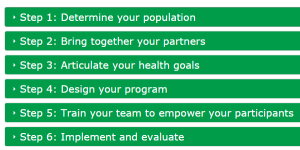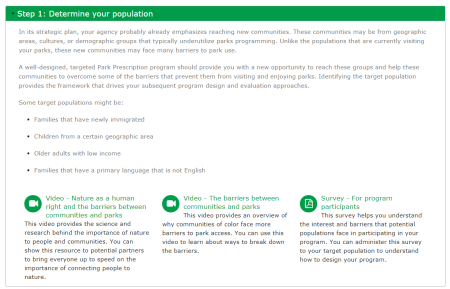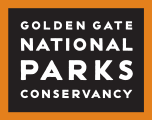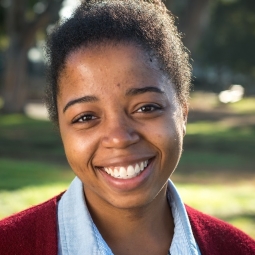How to Use the Park Prescription Program Toolkit
Publication Date
Story/Content
Park Prescription programs are designed to improve the physical and mental health of both individuals and the communities that they are part of. This is accomplished through creating programs that are designed collaboratively among park professionals, health care providers, public health professionals, and community based organizations.
At the 2016 Health Outdoors! Parks and Public Health Forum, two questions commonly raised by participants were: How do I build a Park Prescription program? What sectors should I partner with in order to get my programs started?
In response to these questions the Institute’s Health program did two things: 1) create collaboratives in various counties throughout the Bay Area to help facilitate the creation of Park Prescription programs within them, and 2) create a comprehensive toolkit that efficiently and effectively models each step needed to create a Park Prescription program.
What is unique and wonderful about this toolkit is that it allows the user to not only see the steps that are needed within their own sector, but also allows them to see the steps that other sectors have to follow as well.
How to use this toolkit:
To get started, select the portal for the sector that you represent (clinical, public health, community, or parks) or would like to view.

This will then open a series of steps in green, below is an example using the portal for park professionals.

Select the step that you are interested in learning more about by clicking on each green box. Once selected, the box that you have chosen will expand to provide training videos and technical assistance tools that support your progress in this step. Below is an example of what Parks Step 1: Determine your population looks like when selected.

As with most toolkits, the implementation of this toolkit works best when supported and championed by all of the agencies and sectors involved. If you have any questions or feedback about the toolkit, please contact us.


